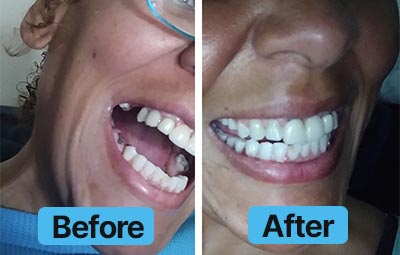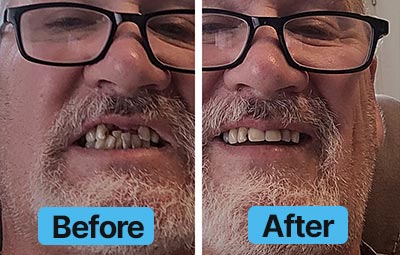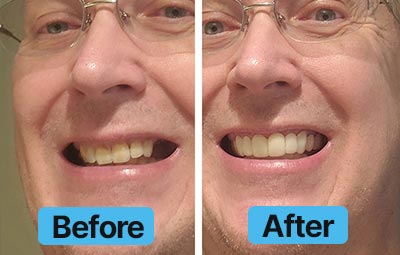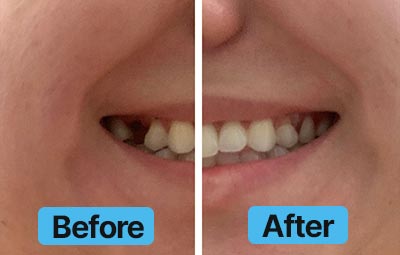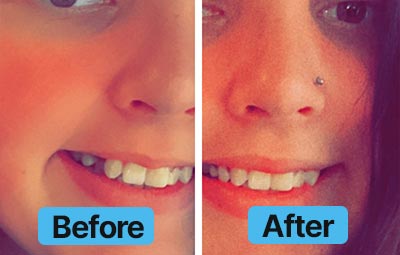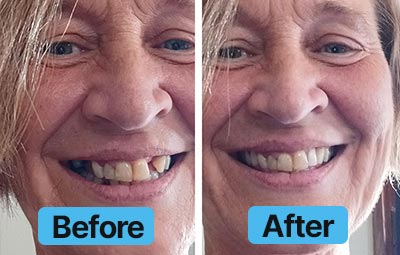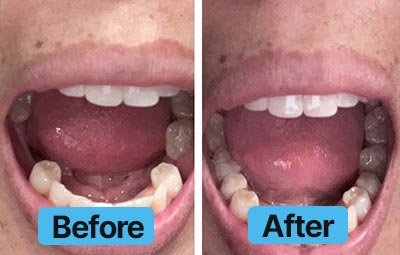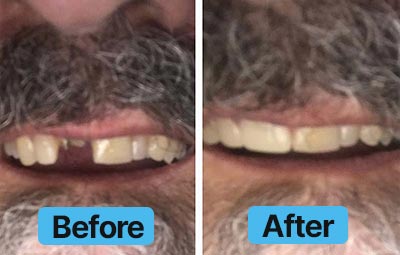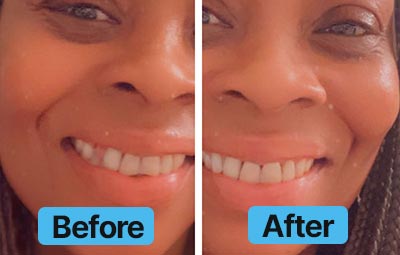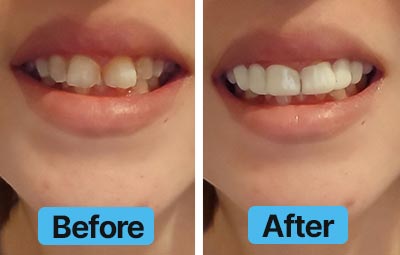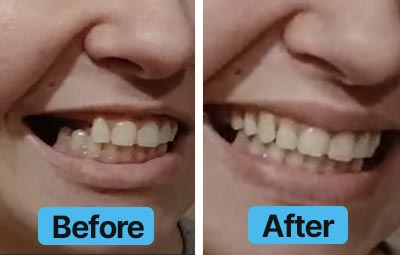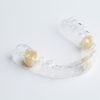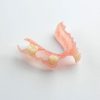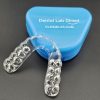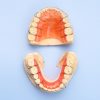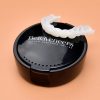"First, I would like to say I was very hesitant about ordering online. I also chose Dental Lab Direct for one reason, you had a phone number on your website were others only had an email. I can't believe how well the partial fits and looks great. I really thought I was wasting my money doing this online. You have proven me wrong and I have and will recommend you to everyone. Thank you Dental Lab Direct."...
READ MOREReviews
Brady C.|Clifton, NJ|4.
"The whole process went so smoothly. I'm so happy with my new smile!"...
READ MORETerri S.|Irvine, CA|5
"You guys are good! My hard/soft night guard went right in. It's not bulky like the others I've had in the past, and fits very well, thank you."...
READ MORESteve G.|Tampa, FL|4
"I wasn't sure about the whole process but after talking with the representative he explained everything very thoroughly. Taking my own impressions was much easier than expected. My retainers fit perfectly."...
READ MORECaroline B.|Denver, CO|5
"I spoke with one of your team members and he assisted me on which partial was best for my circumstance. I was told to order the flexible partial and I love it. "...
READ MOREMario H.|Evanston, IL|3
"The hard/soft night guard is very comfortable. I will be ordering from them again."...
READ MOREGina F.|Tempe, AZ|4
"Thanks for your professional service, My partial fits perfect."...
READ MOREPattie R.|Grand Rapids, MI|4
"Dental Lab Direct was extremely helpful in answering all my questions. They certainly know their stuff. Looking forward to receiving my appliance."...
READ MOREJennifer J.|Orlando, FL|5
"I was a little hesitant to order a partial from you guys, but I am so glad I did. I didn't expect it to look and feel this good, thank you so much."...
READ MORELesley S.|Chico, CA|5
"I received the partial, thank you so much for the perfect fit, I'm so happy to be able to smile with confidence again. It is very comfortable."...
READ MORE 60 DAY warranty on all custom-made products | 1,000+ 5 Star ★★★★★ Reviews
60 DAY warranty on all custom-made products | 1,000+ 5 Star ★★★★★ Reviews
